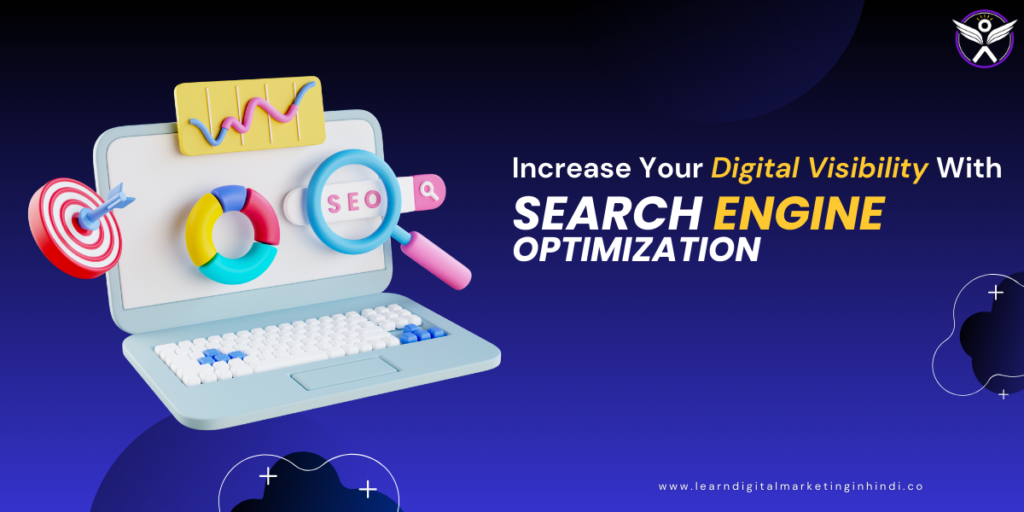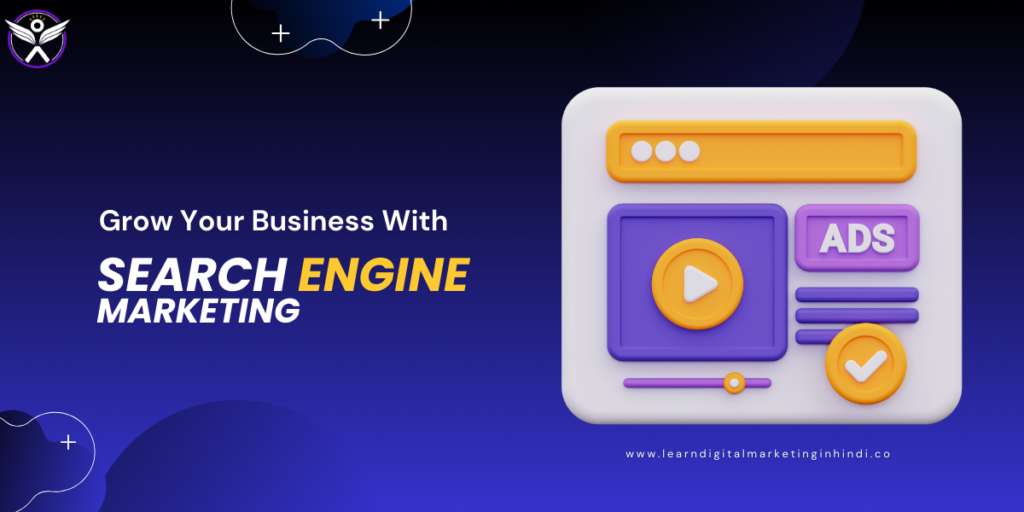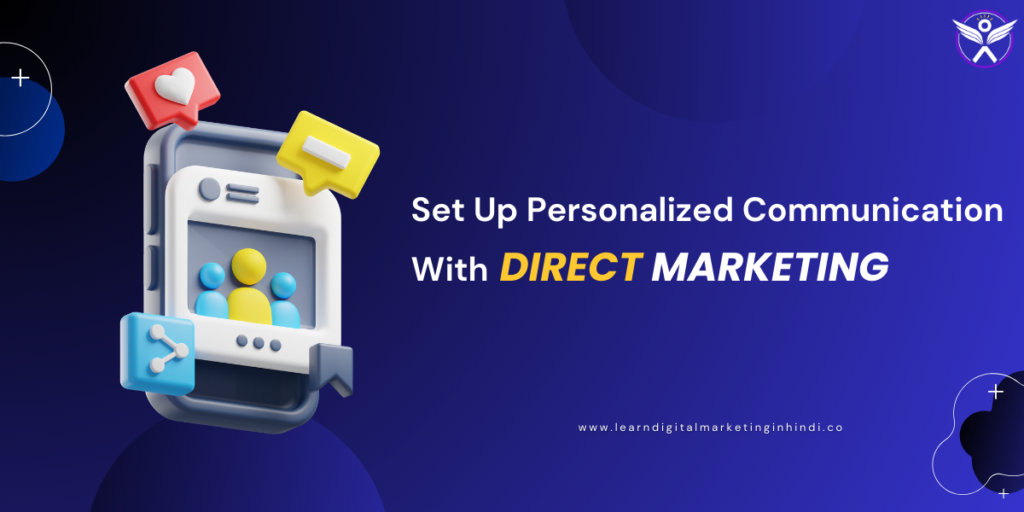Website Building Services

As we enter the year 2023, the world of business continues to evolve at an unprecedented pace. One of the key drivers of success in today’s marketplace is having a strong online presence, and a website plays a crucial role in achieving this goal.
In this day and age, a website is more than just a digital business card. It’s a powerful marketing tool that can help you reach new customers, build brand awareness, and establish credibility in your industry. Let’s take a closer look at the importance of having a website in 2023.
First and foremost, a website allows you to be present where your customers are: online. As the internet becomes more and more integrated into our daily lives, the majority of people turn to search engines to find products and services. Having a website means that you can be found by potential customers who are searching for exactly what you offer.
In addition, a website is the perfect platform to showcase your products or services. You can use high-quality images, videos, and written content to highlight the features and benefits of what you offer. This helps you to attract new customers and keep existing ones engaged.
Another important aspect of having a website is that it allows you to establish credibility in your industry. A well-designed and professional-looking website sends a message to your customers that you are serious about what you do. It shows that you are willing to invest time, effort, and resources into providing a high-quality product or service.
Furthermore, a website is a powerful tool for building relationships with your customers. You can use your website to communicate with them, provide valuable information, and offer special deals or promotions. By keeping your customers engaged and informed, you can build trust and loyalty that will translate into long-term success.
But it’s not just about attracting new customers and building relationships with existing ones. A website can also streamline your business operations and improve your bottom line. For example, you can use your website to automate sales processes, accept payments online, and manage customer data. This can save you time and money, and allow you to focus on other important aspects of your business.
In today’s digital age, having a website is also crucial for staying competitive. Your competitors are most likely online, and if you’re not, you’re missing out on potential business. By having a website, you can level the playing field and compete with other businesses in your industry.
Lastly, a website is an investment in the future of your business. As the world becomes more and more interconnected, having a strong online presence will only become more important. By establishing a website now, you are setting yourself up for success in the years to come.
In conclusion, a website is no longer a luxury, but a necessity for businesses in 2023. It’s an essential tool for attracting new customers, building relationships with existing ones, establishing credibility, streamlining operations, staying competitive, and investing in the future of your business. Whether you’re a small business owner or a large corporation, having a website should be a top priority. So, if you haven’t already, it’s time to take the leap and invest in a website for your business.
SMO - Social Media Optimization

Showcase Your Brand Online With Social Media Optimization
Social media optimization (SMO) is the use of social media networks to manage and grow an organization’s message and online presence. As a digital marketing strategy, social media optimization can be used to increase awareness of new products and services, connect with customers, and mitigate potential damaging news.
For many years, search engine optimization (SEO) was the standard for digital marketing efforts. While social media optimization and search engine optimization have similar goals—to generate web traffic and increase awareness for a company’s website—search engine optimization is the process of increasing the quality and quantity of website traffic by increasing the visibility of a website or a webpage to users of a web search engine, especially Google.
More recently, social media marketing has come to the fore, at times converging with SEO and in some instances replacing it as the most effective way to strengthen a brand, conduct lead generation, increase a company’s visibility in the online space, and connect to an audience. Various social media platforms can be used for digital marketing, including Facebook, Twitter, Instagram, Snapchat, YouTube, Pinterest, and TikTok.
Social media optimization often directs the public from these social media platforms to the company’s website, where more information can be provided. For example, a campaign to raise awareness about a new automobile on social media may direct the visitor to a company webpage that provides information about where local dealerships are located and how to schedule a test drive.
SMM- Social Marketing
Social Media Marketing To Reach Prospects & Customers
Social media marketing is a powerful way for businesses of all sizes to reach prospects and customers. People discover, learn about, follow, and shop from brands on social media, so if you’re not on platforms like Facebook, Instagram, and LinkedIn, you’re missing out! Great marketing on social media can bring remarkable success to your business, creating devoted brand advocates and even driving leads and sales.
Social media marketing is a form of digital marketing that leverages the power of popular social media networks to achieve your marketing and branding goals. But it’s not just about creating business accounts and posting when you feel like it. Social media marketing requires an evolving strategy with measurable goals and includes:
- Maintaining and optimizing your profiles.
- Posting pictures, videos, stories, and live videos that represent your brand and attract a relevant audience.
- Responding to comments, shares, and likes and monitoring your reputation.
- Following and engaging with followers, customers, and influencers to build a community around your brand.
Social media marketing also includes paid social media advertising, where you can pay to have your business appear in front of large volumes of highly targeted users.
SEO-Search Engine Marketing

Increase Your Digital Visibility with SEO
SEO stands for “search engine optimization.” In simple terms, it means the process of improving your site to increase its visibility when people search for products or services related to your business in Google, Bing, and other search engines. The better visibility your pages have in search results, the more likely you are to garner attention and attract prospective and existing customers to your business.
Search engines such as Google and Bing use bots to crawl pages on the web, going from site to site, collecting information about those pages and putting them in an index. Think of the index as a giant library where a librarian can pull up a book (or a web page) to help you find exactly what you’re looking for at the time.
Next, algorithms analyze pages in the index, taking into account hundreds of ranking factors or signals, to determine the order pages should appear in the search results for a given query. In our library analogy, the librarian has read every single book in the library and can tell you exactly which one will have the answers to your questions.
Our SEO success factors can be considered proxies for aspects of the user experience. It’s how search bots estimate exactly how well a website or web page can give the searcher what they’re searching for.
Unlike paid search ads, you can’t pay search engines to get higher organic search rankings, which means SEO experts have to put in the work. That’s where we come in.
Our Periodic Table of SEO Factors organizes the factors into six main categories and weights each based on its overall importance to SEO. For example, content quality and keyword research are key factors of content optimization, and crawlability and speed are important site architecture factors.
The newly updated SEO Periodic Table also includes a list of Toxins that detract from SEO best practices. These are shortcuts or tricks that may have been sufficient to guarantee a high ranking back in the day when the engines’ methods were much less sophisticated. And, they might even work for a short time now — at least until you’re caught.
We’ve also got a brand new Niches section that deep-dives into the SEO success factors behind three key niches: Local SEO, News/Publishing, and e-commerce SEO. While our overall SEO Periodic Table will help you with the best practices, knowing the nuances of SEO for each of these Niches can help you succeed in search results for your small business, recipe blog, and/or online store.
The search algorithms are designed to surface relevant, authoritative pages and provide users with an efficient search experience. Optimizing your site and content with these factors in mind can help your pages rank higher in the search results.
SEM-Search Engine Marketing

Lorem ipsum dolor sit amet, consectetur adipiscing elit. Ut elit tellus, luctus nec ullamcorper mattis, pulvinar dapibus leo.
Grow Your Business In a Competitive Marketplace With Search Engine Marketing
Search engine marketing, or SEM, is one of the most effective ways to grow your business in an increasingly competitive marketplace. With millions of businesses out there all vying for the same eyeballs, it’s never been more important to advertise online, and search engine marketing is the most effective way to promote your products and grow your business.
In this guide, you’ll learn an overview of search engine marketing basics as well as some tips and strategies for doing search engine marketing right.
Search Engine Marketing – An Overview
Search engine marketing is the practice of marketing a business using paid advertisements that appear on search engine results pages (or SERPs). Advertisers bid on keywords that users of services such as Google and Bing might enter when looking for certain products or services, which gives the advertiser the opportunity for their ads to appear alongside results for those search queries.
These ads, often known by the term pay-per-click ads, come in a variety of formats. Some are small, text-based ads, whereas others, such as product listing ads (PLAs, also known as Shopping ads) are more visual, product-based advertisements that allow consumers to see important information at-a-glance, such as price and reviews.
Search engine marketing’s greatest strength is that it offers advertisers the opportunity to put their ads in front of motivated customers who are ready to buy at the precise moment they’re ready to make a purchase. No other advertising medium can do this, which is why search engine marketing is so effective and such an amazingly powerful way to grow your business.
Direct Marketing

Learn Direct Marketing To Generate More Sales
Direct marketing is a type of marketing that involves communicating directly with potential customers through various channels, such as email, direct mail, telemarketing, and SMS. Unlike traditional forms of marketing that are intended for mass audiences, direct marketing is highly targeted and personalized, allowing businesses to reach specific individuals or groups with tailored messages.
The goal of direct marketing is to generate a response from the recipient, such as making a purchase, signing up for a service, or attending an event. By creating targeted campaigns that appeal to the interests and needs of specific audiences, direct marketing can be an effective way to increase customer engagement and drive sales.
Here are some key benefits of direct marketing:
- Targeted messaging: Direct marketing allows businesses to tailor their messages to specific audiences, based on factors such as demographics, interests, and past purchase behavior. By delivering highly relevant messages to the right people, businesses can increase the likelihood of a response and improve ROI.
- Personalization: In addition to targeting, direct marketing also allows for personalization. By using data such as names, past purchases, and preferences, businesses can create messages that feel more personal and engaging. This can help to build stronger relationships with customers and increase loyalty.
- Measurable results: Direct marketing campaigns are highly measurable, allowing businesses to track responses and adjust their strategies accordingly. By analyzing metrics such as open rates, click-through rates, and conversion rates, businesses can optimize their campaigns for better results.
- Cost-effective: Direct marketing can be a cost-effective way to reach specific audiences, especially when compared to traditional forms of marketing such as TV or print advertising. By targeting only those individuals who are most likely to respond, businesses can avoid wasting money on ineffective campaigns.
- Quick feedback: Direct marketing campaigns often generate quick feedback, allowing businesses to see the results of their efforts in a short amount of time. This can help businesses to make adjustments quickly and improve their ROI.
There are several different channels that businesses can use for direct marketing. Here are some of the most common:
- Email: Email marketing is a popular form of direct marketing that involves sending promotional messages to a list of subscribers. By segmenting email lists and tailoring messages to specific audiences, businesses can increase the effectiveness of their campaigns.
- Direct mail: Direct mail involves sending promotional materials such as flyers, postcards, or catalogues to a targeted list of recipients. While it can be more expensive than other forms of direct marketing, direct mail can be highly effective when done correctly.
- Telemarketing: Telemarketing involves calling potential customers directly to promote a product or service. While it can be a controversial form of marketing, telemarketing can be effective when done in a non-intrusive way.
- SMS: SMS marketing involves sending text messages to potential customers with promotional messages or offers. While it can be a relatively new form of direct marketing, SMS has become increasingly popular in recent years due to its high open and response rates.
Privacy Policy
Privacy Policy
Who we are
Our website address is: https://www.digitalazadi.com
What personal data we collect and why we collect it
We collect visitor’s name, email id and contact number which is used by us for our marketing purposes.
Comments
When visitors leave comments on the site we collect the data shown in the comments form, and also the visitor’s IP address and browser user agent string to help spam detection.
An anonymized string created from your email address (also called a hash) may be provided to the Gravatar service to see if you are using it. The Gravatar service privacy policy is available here: https://automattic.com/privacy/. After approval of your comment, your profile picture is visible to the public in the context of your comment.
Media
If you upload images to the website, you should avoid uploading images with embedded location data (EXIF GPS) included. Visitors to the website can download and extract any location data from images on the website.
Contact forms
contact forms are used to collect visitor’s data.
Cookies
If you leave a comment on our site you may opt-in to saving your name, email address and website in cookies. These are for your convenience so that you do not have to fill in your details again when you leave another comment. These cookies will last for one year.
If you visit our login page, we will set a temporary cookie to determine if your browser accepts cookies. This cookie contains no personal data and is discarded when you close your browser.
When you log in, we will also set up several cookies to save your login information and your screen display choices. Login cookies last for two days, and screen options cookies last for a year. If you select “Remember Me”, your login will persist for two weeks. If you log out of your account, the login cookies will be removed.
If you edit or publish an article, an additional cookie will be saved in your browser. This cookie includes no personal data and simply indicates the post ID of the article you just edited. It expires after 1 day.
Embedded content from other websites
Articles on this site may include embedded content (e.g. videos, images, articles, etc.). Embedded content from other websites behaves in the exact same way as if the visitor has visited the other website.
These websites may collect data about you, use cookies, embed additional third-party tracking, and monitor your interaction with that embedded content, including tracking your interaction with the embedded content if you have an account and are logged in to that website.
Analytics
How long we retain your data
We Retain your data with us forever.
Who we share your data with
We share your data with our sister concerns and with who so ever we feel comfortable with.
If you leave a comment, the comment and its metadata are retained indefinitely. This is so we can recognize and approve any follow-up comments automatically instead of holding them in a moderation queue.
For users that register on our website (if any), we also store the personal information they provide in their user profile. All users can see, edit, or delete their personal information at any time (except they cannot change their username). Website administrators can also see and edit that information.
What rights we have over your data
If you have an account on this site, or have left comments, you can request to receive an exported file of the personal data we hold about you, including any data you have provided to us. You can also request that we erase any personal data we hold about you. This does not include any data we are obliged to keep for administrative, legal, or security purposes.
Where we send your data
Visitor comments may be checked through an automated spam detection service.
Your Contact Information
We collect information from you when you register on our site, subscribe to a newsletter, fill out a form or enter information on our site.
We may use the information we collect from you when you register, make a purchase, sign up for our newsletter, respond to a survey or marketing communication, surf the website, or use certain other site features in the following ways:
- To personalize user’s experience and to allow us to deliver the type of content and product offerings in which you are most interested.
- To improve our website in order to better serve you.
- To send periodic emails regarding your order or other products and services.
How we protect your data
Our website is scanned on a regular basis for security holes and known vulnerabilities in order to make your visit to our site as safe as possible.
We use regular Malware Scanning.
What data breach procedures we have in place
We agree that we will not sell or rent your personal information to third parties for their marketing purposes without your explicit consent. From time to time, we may reveal general statistical information about our Site and visitors, such as number of visitors, number and type of goods and services purchased, etc. Only those of our employees who need access to your information in order to perform their duties are allowed such access. Any employee who violates our privacy and/or security policies is subjected to disciplinary action, including possible termination and civil and/or criminal prosecution.
The Personal Information is used for two general purposes: to process your order, and to provide you with the best possible services. Unless otherwise stated explicitly, this policy applies to personal information as disclosed on any of the media.
In furtherance of the confidentiality with which we treat Personal Information, we have put in place appropriate physical, electronic, and managerial procedures to safeguard and secure the information we collect online.
Third Party Disclosure
We do not sell, trade, or otherwise transfer to outside parties your personally identifiable information unless we provide you with advance notice. This does not include website hosting partners and other parties who assist us in operating our website, conducting our business, or servicing you, so long as those parties agree to keep this information confidential. We may also release your information when we believe release is appropriate to comply with the law, enforce our site policies, or protect ours or others’ rights, property, or safety.
However, non-personally identifiable visitor information may be provided to other parties for marketing, advertising, or other uses.
Third party links
Occasionally, at our discretion, we may include or offer third party products or services on our website. These third party sites have separate and independent privacy policies. We therefore have no responsibility or liability for the content and activities of these linked sites. Nonetheless, we seek to protect the integrity of our site and welcome any feedback about these sites.
Refunds
All sales are final and no refunds will be issued
Questions
In case if you have any questions regarding our refund policy, please contact us on connect@digitalazadi.com
